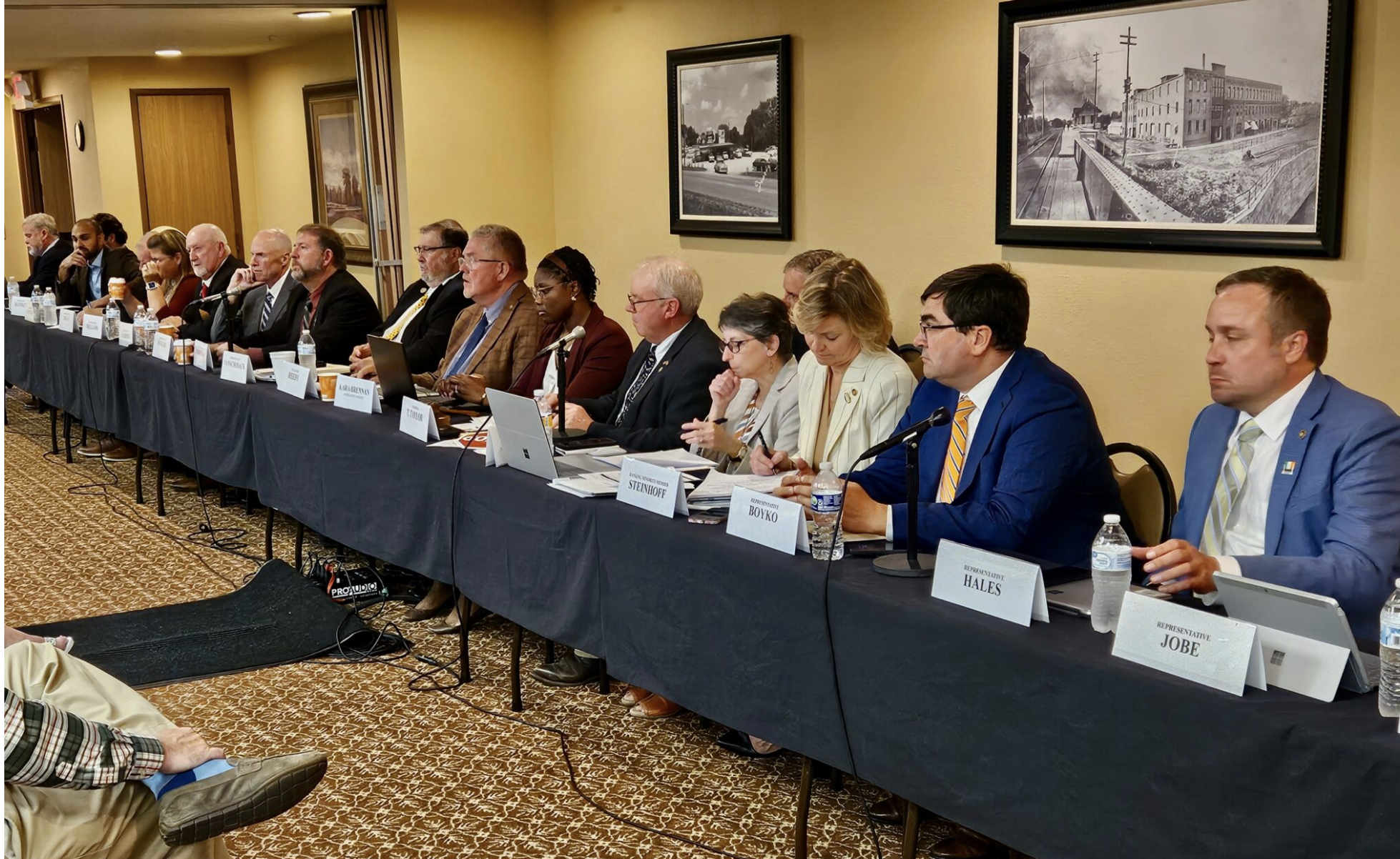
By:Cameron Smith and Jack Schouten
Members of a special House committee talked Tuesday through a multitude of potential solutions to relieve the tax burden facing Missourians.
“The committee’s goal is to find common sense reforms and solutions that will protect homeowners, promote economic stability and share capability,” said Rep. Tim Taylor, R-Bunceton, chair of the Special Interim Committee on Property Tax Reform.
The committee conducted six hearings in five separate cities across the state this past summer. In the 25 hours of testimony, they heard complaints from residents and local officials related to property tax evaluation and assessment.
Republican members of the committee agreed that there is no “one size fits all” option when it comes to deciding the allocation of taxation at the county level. Taylor noted that 72% of property taxes fund public schools.
In response, Rep. Del Taylor, D-St. Louis, said he wants the state to get involved because it is the buffer when local districts fall short on funding for schools in particular.
Multiple potential solutions were mentioned at the meeting.
Among the proposals was the committee chair’s idea of expanding the ability of districts to institute a sales tax instead of a property tax to fund public schools. Others raised concerns of possible double dipping under that model.
“I would be opposed to anything that allowed any level of governance to double collect taxes,” said Rep. Darin Chappell, R-Rogersville. “I would be absolutely opposed for the opportunity to exist for both methodologies to be active at the same time.”
The committee is faced with navigating 40-year-old bill language to deal with modern assessment and taxation issues. Rep. Rodger Reedy, R-Windsor, laid out the term plainly: “We as legislators have failed to keep up with the times.”
Further complicating the potential for solutions is the Hancock Amendment, enacted in 1980 to limit the amount of money that can be extracted through taxation. A provision in the amendment states that property tax rates have to be adjusted to avoid windfall revenue increases as a result of rapid increases in values.
The amendment is one of the many challenges the committee faces. Members agreed that they had no appetite for attempting to change the Missouri Constitution by seeking to adjust the Hancock Amendment.
“The more I’ve been in this committee, the more I’ve felt that we have got a large sandbox we can play in when it comes to statute. Can we try to play in that sandbox and stay away from the constitution for now?” said Rep. Kathy Steinhoff, D-Columbia.
Both Steinhoff, and Rep. Dean Van Schoiack, R-Savannah, said they felt that the discussion went well and that progress towards a potential bill was made. Both said they anticipate further meetings and discussions that could continue into the start of the legislative session in January.
This article was originally published in the Columbia Missourian and is republished with permission.








